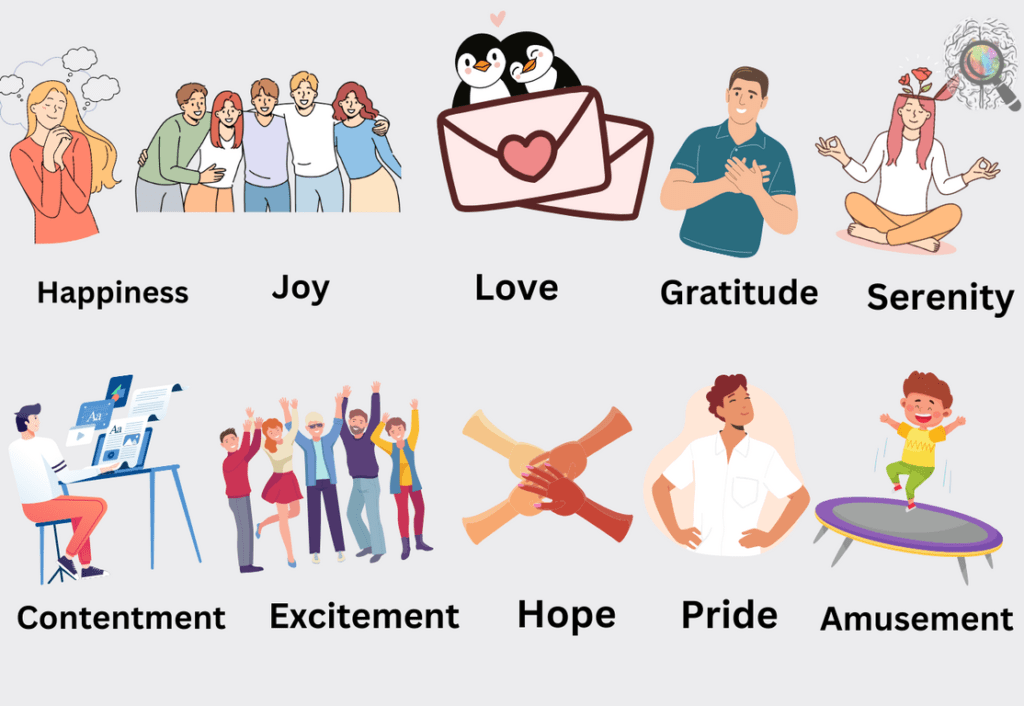Most of us have seen first hand or have heard of the importance of a positive outlook in the face of serious illness. The idea that losing hope may foretell losing a battle against the disease. Compelling evidence shows that our emotions do affect our health. Positive emotions contribute to enhancement of our health resources.
Contents
Positive Emotions & Health Resources
- Norman Cousins, an American political journalist, author, professor describes how he used laughter to deal with the pain of ankylosing spondylitis.
- Its is a disease that causes inflammation of connective tissues in joints and vertebrae. In addition, it is excruciatingly painful and potentially life threatening. He watched his favorite Max Brothers movies.
- According to him, 10 minutes of laughter allowed him 2 hours of pain free sleep. It also reduced inflammation in areas of his body affected by the disease.
- Salovey and colleagues stated that “In general negative emotional states are associated with unhealthy patterns of physiological functioning. Whereas, positive emotional states are associated with healthier patterns of responding in both cardiovascular activity and the immune system.”
- Negative and positive emotions have the potential to set in motion a variety of physical, psychological and social changes that can either compromise or enhance our health.
- There are a number of pathways whereby emotions may affect health.
- Barbara Fredrickson’s (2001) broaden-and-build theory of positive emotions provides an overview of how positive emotions help to build.
- Physical resources
- Psychological resources
- Social resources
1. Physical Resources-
- Physical resources involve the health and integrity of the body and the strength of the body’s defenses against disease.
- Positive emotions also contributes to our physical resources by enhancing immune system functioning and associated with better health.
- Physical or biological resources important to our health involve four interacting systems. These system involves the brain, the nervous system as a whole, the endocrine system and the immune system. Mind and body are in a mutually influential relationship because of these interconnected systems.
- The physical experience of sweaty palms and dry mouth caused by your psychological state of anxiety while giving a speech in front of an audience provides an everyday example of mind influencing the body.
- As a matter of fact the primary purpose of the immune system is to destroy or neutralize pathogens that might us sick. The more positive event the men experienced during a given day, the more antibodies they produced.
- Laughter is one of the more expressive positive emotion. It is associated with positive changes in the immune system and with better recovery from illness. Humor and laughter increase the body’s production of antibodies and NK cells. And that humor helps people cope with serious illness such as cancer.

2. Psychological Resources-
Psychological resources refer to the effectiveness of people’s responses in dealing with stressful situations and the personal qualities they possess that provide strength and resilience in facing life challenges.
Positive emotions and coping with stress.
- Psychological resources for managing stress involve the strength and effectiveness of our intellectual, behavioral, and emotional efforts to reduce and offset stressful experiences. However, coping behaviors are often grouped into two general categories: problem-focused coping and emotion-focused coping.
- Problem-focused coping involves behaviors directed at altering, reducing or eliminating the source of stress. Such as seeking concrete help from others, taking action to change a stressful life situation, or gathering and evaluating information to access one’s alternatives.
- Emotion-focused coping involves an attempt to change or reduce one’s own response to a stressful experience. For example, avoiding the problem, denying the problem exists, seeking emotional support from others, venting one’s emotions to relieve stress and positive self-talk.
- Aspinwall and Taylor, suggested a third category of coping called proactive coping. It involves efforts to prevent stress from happening in the first place. Such as going to the doctor when you first notice symptoms of a serious illness.
- Positive emotions play and important role in coping with stress and life traumas. It might also play a role in the relationship between optimism and health. It may bolster depleted psychological resources by promoting optimism, hope, and confidence and may also contribute to physical resources that enhance immune system functioning.
3. Social Resources-
- Social resources refer to the number and the quality of relationships with others that provide support in times of need. People involved in a network of close, supportive relationships (. For example, with spouse, friends, family members, neighbors, communities, and social or religious group.) enjoy better health and more personal happiness than those who lack such a network. They get sick less often and live longer than people with few social involvements.
- The more social contacts a person had, the longer she or he lived. The health risks associated with a lack of social ties exceeded the risks of cigarette smoking and obesity.
- On the negative side, a lack of social ties, involvement in conflictual relationships or loss of a significant relationship can contribute to loneliness, depression, personal distress and unhappiness. For example, death of spouse can have a dramatic effect on both physical and emotional well-being.
- The buffering hypothesis states that social support from others reduces (i.e., buffers) the potential weakening effects of stress. By sharing our burden with others, our own burden becomes lighter, stress levels are reduced, and stress induced suppression of the immune system may decrease.
- Cancer patients who discussed their feelings with other patients in a support group setting showed better health outcomes than cancer patients who were not involved in support groups.
In summary, as Fredrickson’s (2001) pointed in the broaden-and-build theory, positive emotions like joy, contentment, interest, love, and pride “all share the ability to broaden people’s thought-action repertoires and build their enduring personal resources, ranging from physical & intellectual resources to social & psychological resources”
Reference
Positive Psychology. Baumgardner and Crothers. 2015. Pearson India Education.
Positive Psychology: The Science of Happiness and Flourishing.

